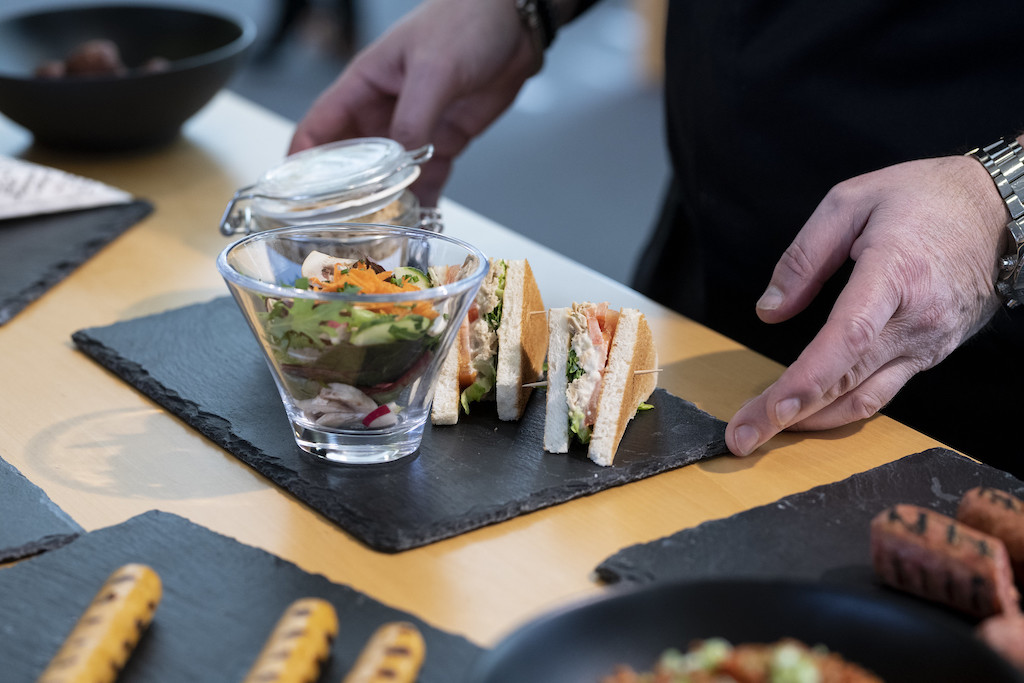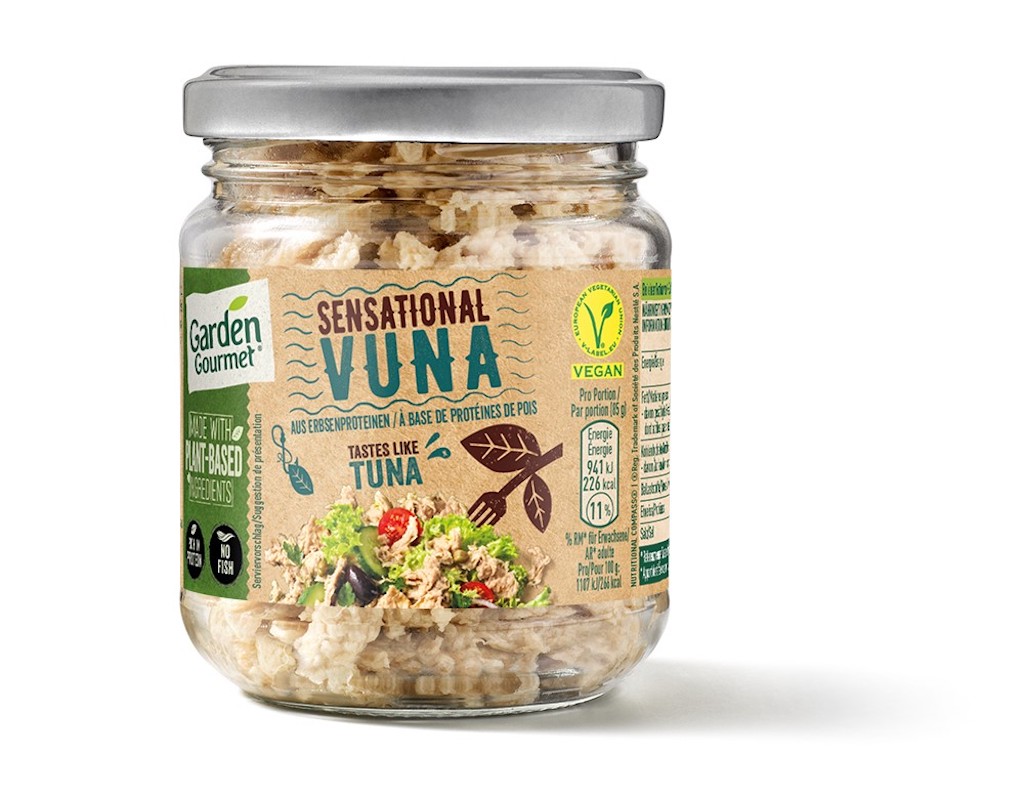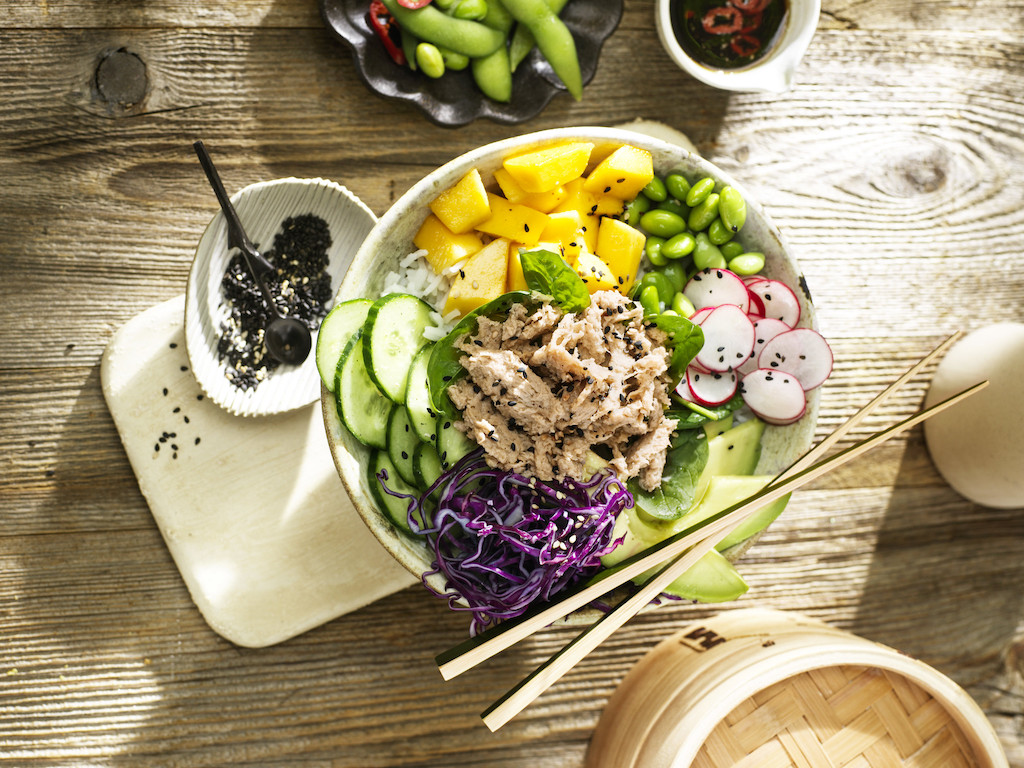3 Mins Read
Swiss food giant Nestlé has just announced the launch of a plant-based tuna product under its Garden Gourmet brand, marking the conglomerate’s first foray into the alternative seafood market. The product will be available in Switzerland ahead of further roll out plans, which Nestlé says it will reveal soon.
Today, Nestlé will introduce its newest product addition to its growing plant-based line – plant-based tuna. It will be launched under its Garden Gourmet brand and is made from pea protein and without any artificial colourings or preservatives. According to Nestlé, the product, which is 9 months in the making, has a flaky texture and can be used to substitute tuna dishes, from salads to sandwiches and pizzas.

Dubbed “Sensational Vuna”, Nestle’s new plant-based tuna will come in both the chilled product format, available in glass jars, as well as in pre-made plant-based tuna sandwiches available in select stores across Switzerland.
It marks the company’s first entry into the alternative seafood market, which is currently experiencing surging demand as consumer awareness of the environmental, ethical and health impacts of the conventional seafood industry grows.
“Sustainably produced plant-based seafood alternatives can help to reduce overfishing and to protect the biodiversity of our oceans,” said Stefan Palzer, chief technology officer at Nestlé, in a statement.
“Our plant-based tuna alternative is delicious, nutritious and high in protein, while also being mercury-free. We are excited to launch this great product, and other plant-based fish and shellfish alternatives are already under development.”
Sustainably produced plant-based seafood alternatives can help to reduce overfishing and to protect the biodiversity of our oceans. Our plant-based tuna alternative is delicious, nutritious and high in protein, while also being mercury-free.
Stefan Palzer, CTO at Nestlé
Garden Gourmet’s new plant-based tuna product will debut in Switzerland before being introduced to other international markets.
“We are delighted to launch this strategic expansion of Nestlé’s plant-based offerings in the Swiss market first,” said Eugenio Simioni, market head for Nestlé Switzerland.
“It is another example of the innovation strength of Nestlé in Switzerland, and the exceptional capabilities and expertise we have in this country in the area of food and nutrition.”
Earlier this year, Nestlé made the decision to aggressively pursue plant-based innovation across all its existing product categories and brands in a bid to keep up with consumer demand. This demand has been accelerated by the coronavirus pandemic, which has exposed the vulnerabilities of the meat supply chain.

Just last month, the Swiss multinational reported record 40% growth in its plant-based category within the first half of 2020, while other product sectors saw a decline in sales amid the economic fallout.
Plant-based seafood is likely to be a strong performing category, with existing food tech player in the space, Good Catch Foods, recently announcing the opening of its new 42,500 square foot facility to keep up with demand. Good Catch uses a proprietary blend of peas, chickpeas, soybeans, lentils, fava and navy beans to develop its line of 100% plant-based products.
As the plant-based trend moves into the mainstream, the industry is likely to see other FMCG giants too taking advantage of the business opportunity. In a recent report published by FAIRR, nearly half of the world’s biggest food retailers and manufacturers now have dedicated plant-based teams focused on creating new vegan-friendly products.
Tesco and Unilever ranked the highest in terms of its commitment to shifting its portfolio towards plant-based, according to the analysis.
All images courtesy of Nestlé.




